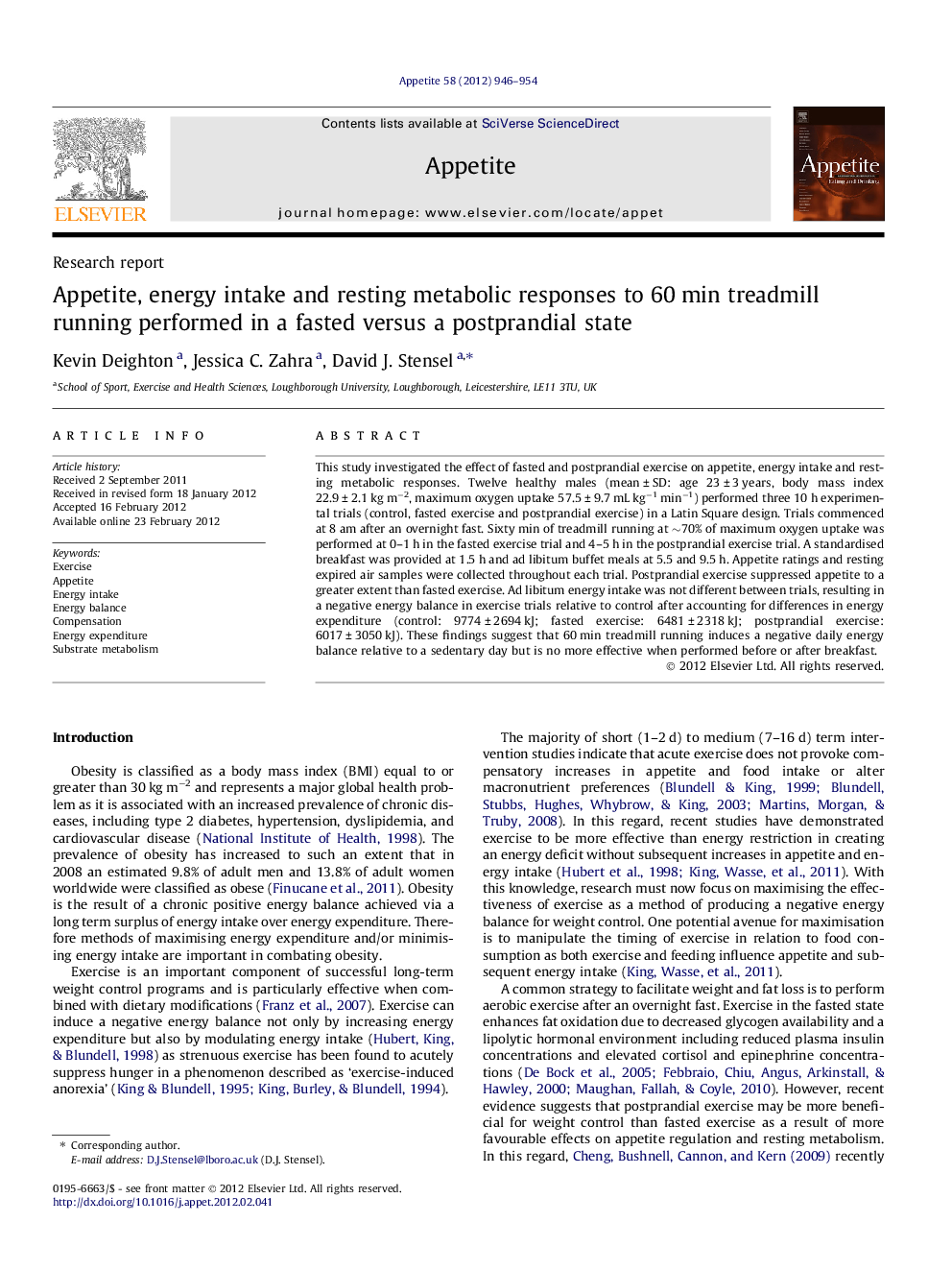| Article ID | Journal | Published Year | Pages | File Type |
|---|---|---|---|---|
| 940408 | Appetite | 2012 | 9 Pages |
This study investigated the effect of fasted and postprandial exercise on appetite, energy intake and resting metabolic responses. Twelve healthy males (mean ± SD: age 23 ± 3 years, body mass index 22.9 ± 2.1 kg m−2, maximum oxygen uptake 57.5 ± 9.7 mL kg−1 min−1) performed three 10 h experimental trials (control, fasted exercise and postprandial exercise) in a Latin Square design. Trials commenced at 8 am after an overnight fast. Sixty min of treadmill running at ∼70% of maximum oxygen uptake was performed at 0–1 h in the fasted exercise trial and 4–5 h in the postprandial exercise trial. A standardised breakfast was provided at 1.5 h and ad libitum buffet meals at 5.5 and 9.5 h. Appetite ratings and resting expired air samples were collected throughout each trial. Postprandial exercise suppressed appetite to a greater extent than fasted exercise. Ad libitum energy intake was not different between trials, resulting in a negative energy balance in exercise trials relative to control after accounting for differences in energy expenditure (control: 9774 ± 2694 kJ; fasted exercise: 6481 ± 2318 kJ; postprandial exercise: 6017 ± 3050 kJ). These findings suggest that 60 min treadmill running induces a negative daily energy balance relative to a sedentary day but is no more effective when performed before or after breakfast.
► Postprandial exercise suppressed appetite to a greater extent than fasted exercise. ► Energy intake was unaffected by exercise. ► Relative energy intake was lower in exercise trials than control. ► Relative energy intake was not different between exercise trials. ► No additional benefit of exercising before or after breakfast for energy balance.
